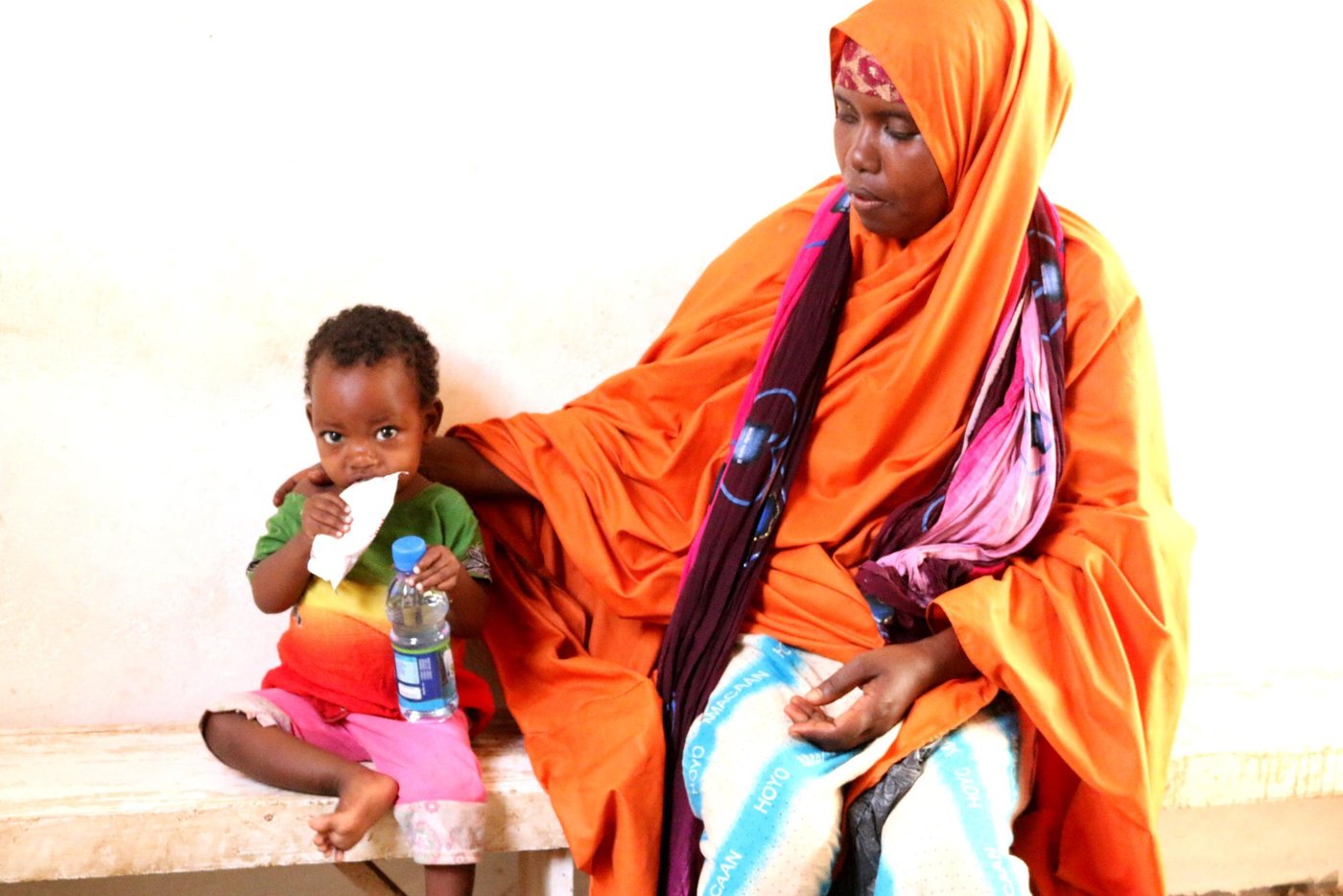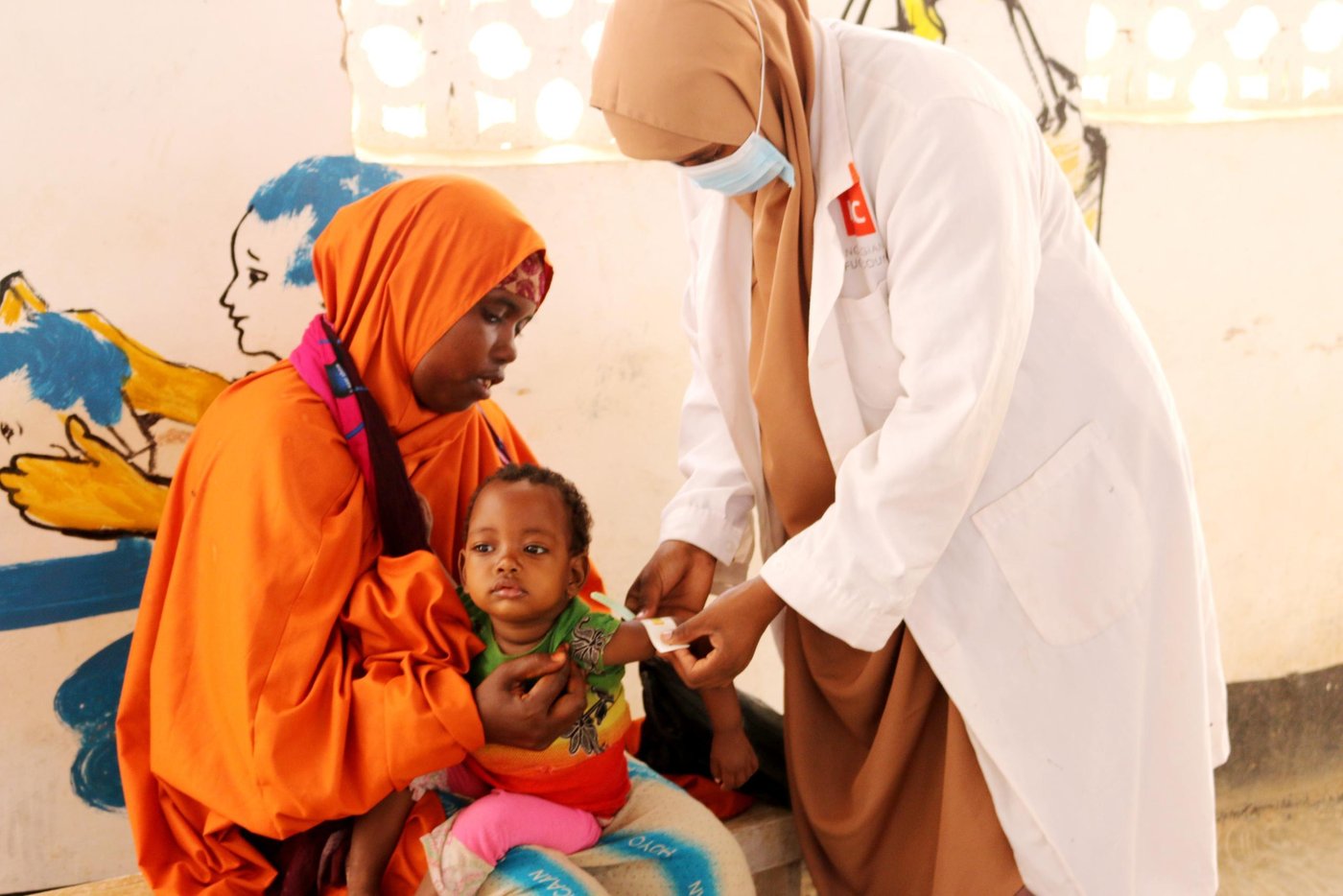Khadija’s husband divorced her when she gave birth to her fifth child, leaving her struggling to feed her five children alone.
During the long journey to Baidoa, access to food and water was very limited. At some points, Khadija wasn’t sure if they would make it.
“The trip was never easy,” says Khadija. “I still remember the time we went without food and water for a whole day. I didn’t have money. I didn’t have anything else to feed my children. I stopped at every village we passed to ask for food and water for my children.”
“I felt like my baby was dying”
Khadija and her children now live in Hanano camp for displaced Somalians in Baidoa town. She earns a very small income through casual work, but it is not enough to feed her five children. Khadija’s baby daughter, Fatima, became sick and severely malnourished.
“I felt like my baby was dying. She became weak,” recalls Khadija. “She was not eating anything. I felt awful, but I didn’t know what to do. I didn’t have money to take her to hospital.”
“Fortunately, I heard one of my neighbours saying that there was a health centre in our camp for sick children. I didn’t hesitate. I ran immediately to the health centre.”

Khadija arrived at the mother and child healthcare centre in Baidoa. Eleven-month-old Fatima was found to be severely malnourished, weighing less than 6 kg.
Treatment began immediately and Fatima’s condition started to improve. She regained her appetite and began gaining weight. After ten days as an inpatient, Fatima was discharged from the stabilisation centre to continue with the outpatient therapeutic programme (OTP) for three months, through which she received nutrition services.
“I am happy with the immediate treatment and the help my daughter received from the health centre. I was not expecting to receive this. My daughter got the help she needed just in time,” says Khadija.
“Thank you to everyone who contributes to this much needed health service.”
***
Thanks to funding support from the UK’s Foreign, Commonwealth and Development Office (FCDO), the mother and child healthcare centre provides urgent treatment for children suffering from severe acute malnutrition. For some children who are very ill, like Fatima, this treatment saves their lives.


